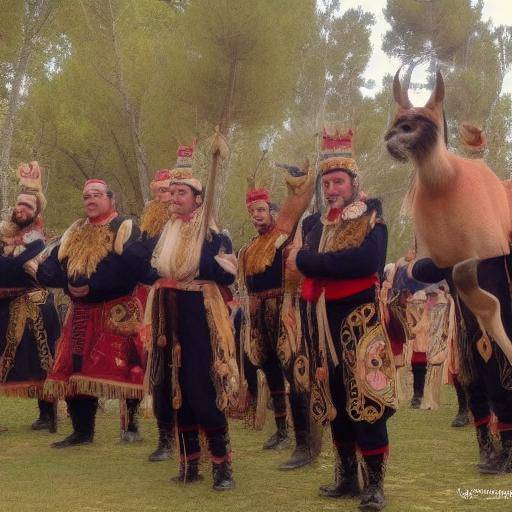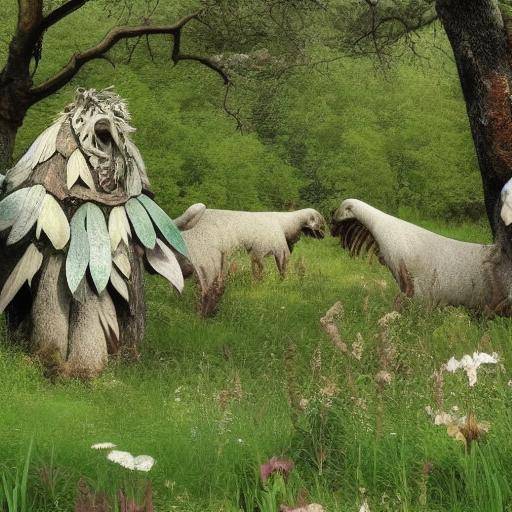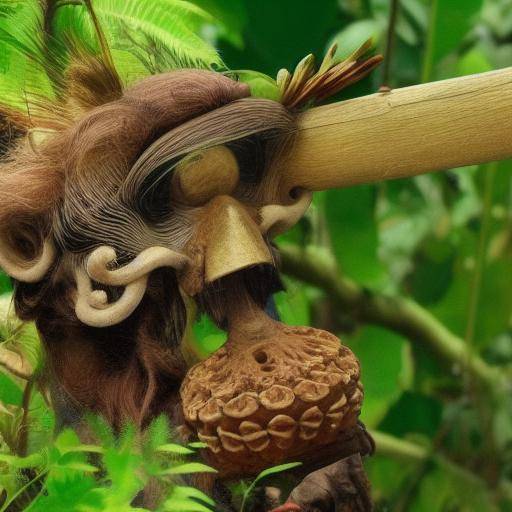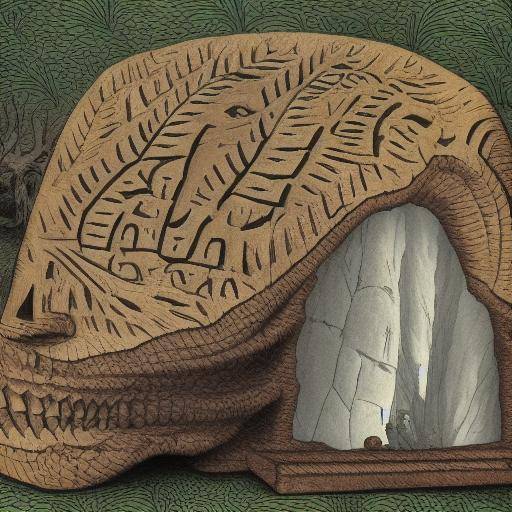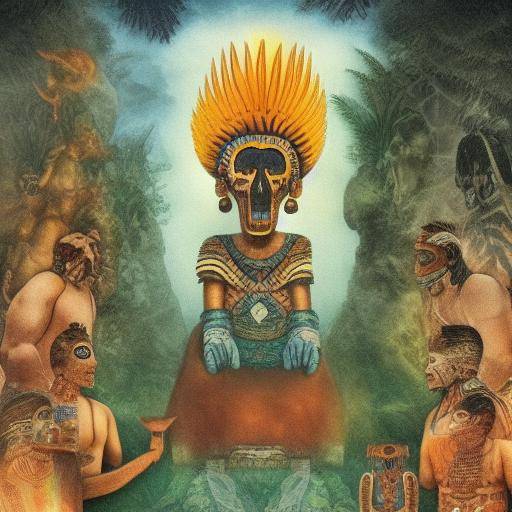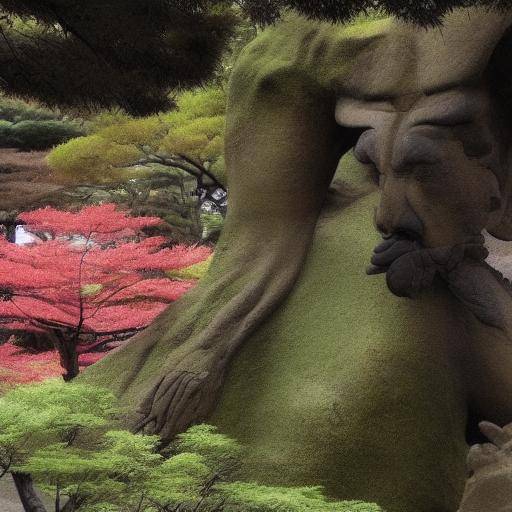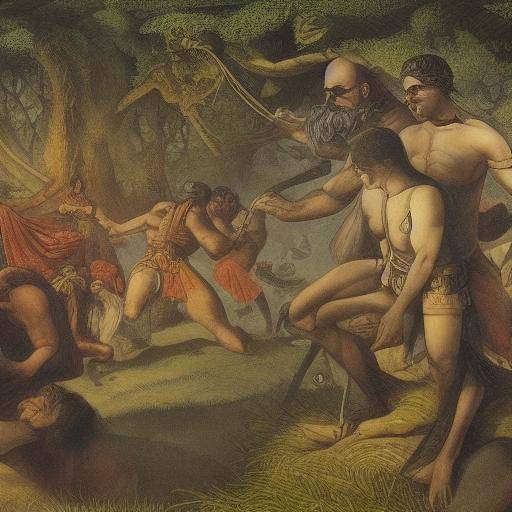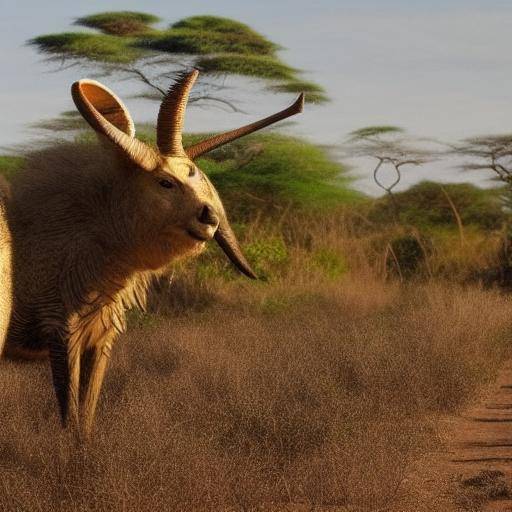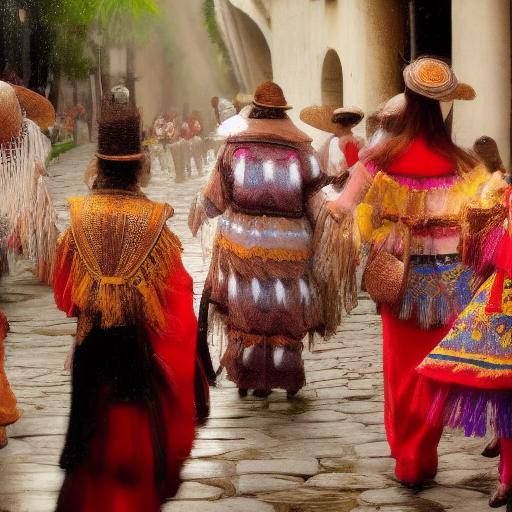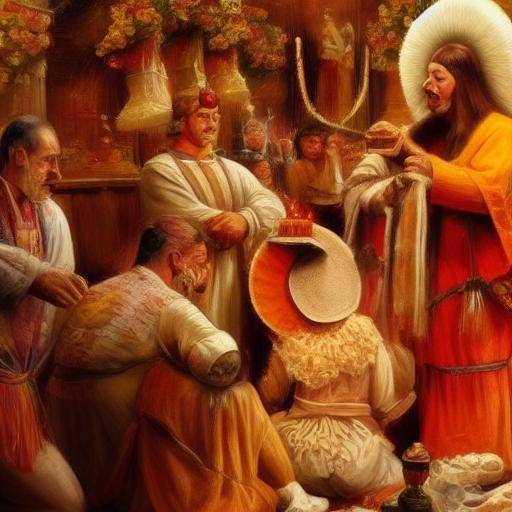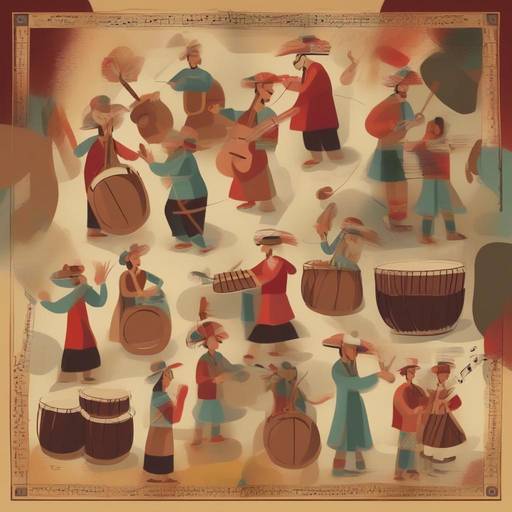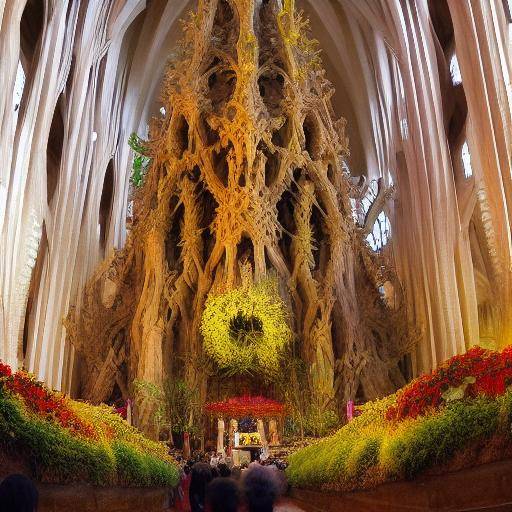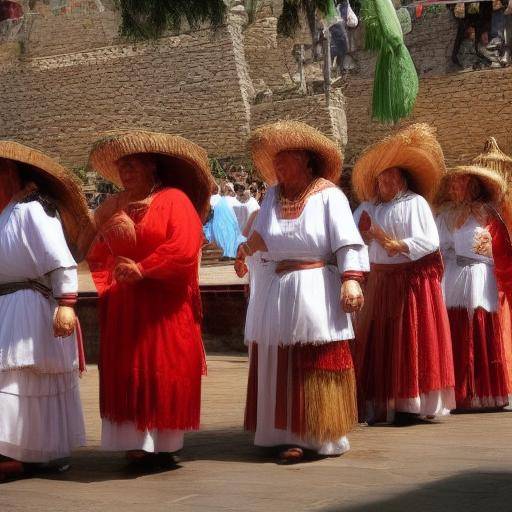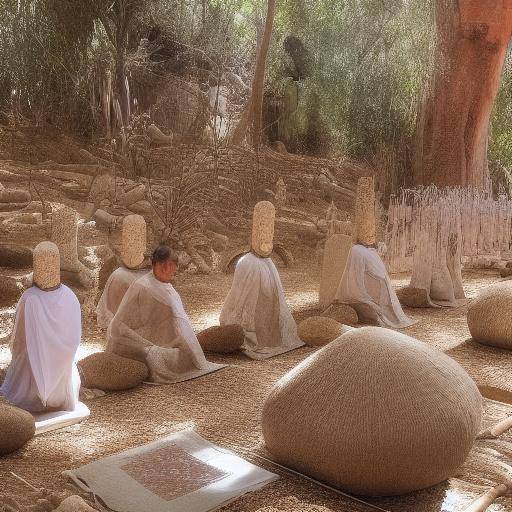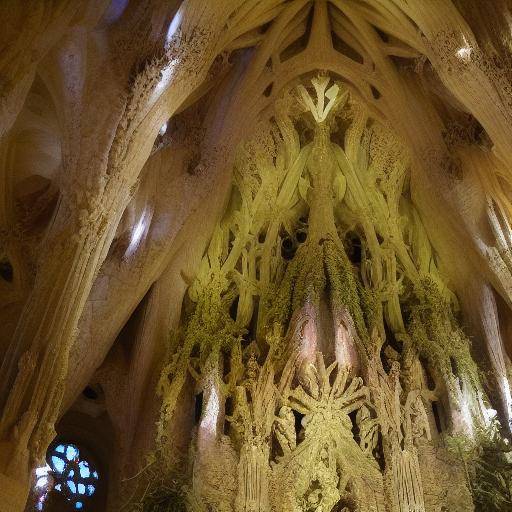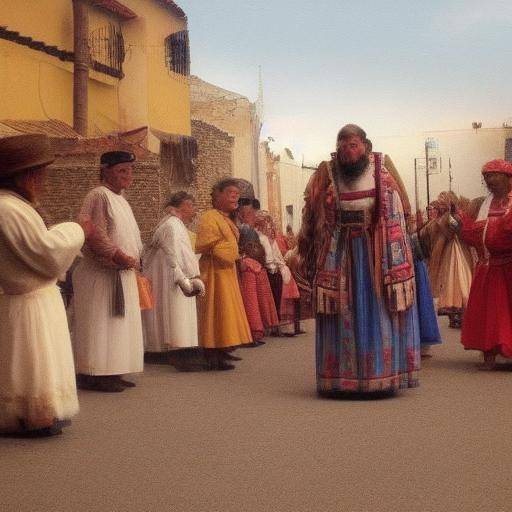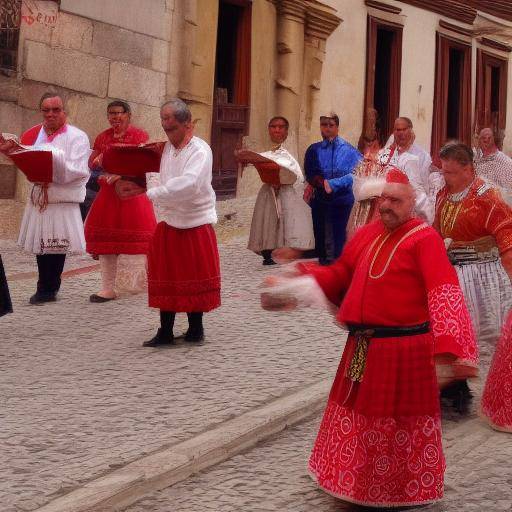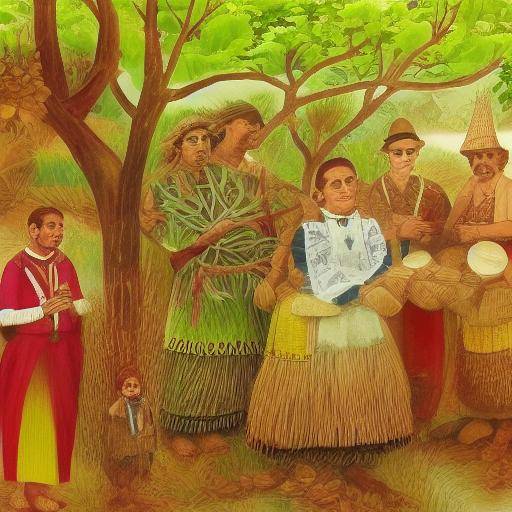
The importance of nature in ancestral traditions has endured throughout the history of humanity. Ancient civilizations have been based on nature for their traditions, rituals and beliefs, creating a deep bond between the human being and the natural environment. In this article, we will explore the crucial role that nature plays in ancestral traditions, from its historical origins to its contemporary applications. In addition, we will examine the relevance of ancient nature and traditions today, as well as their future implications. Join us on this fascinating journey through the interconnection between nature and ancestral traditions!
Introduction
The relationship between nature and ancestral traditions dates back to time immemorial. From rituals of worship to nature to festivals linked to natural cycles, the influence of nature in the customs and beliefs of different cultures has been fundamental. This link has shaped not only the spiritual and ceremonial practices, but also the world's cosmovision and understanding that have passed from generation to generation. In this context, it is crucial to understand how these ancestral ties continue to influence contemporary society and future projections.
History and Background
Ancient traditions with a strong natural component have been manifested in diverse cultures around the world. In civilizations such as Egyptian, Mesopotamia, Chinese, Greek, Roman, American Indian and many others, nature has played a fundamental role in the formation of its ceremonial beliefs, rituals and practices. These traditions have been nurtured by direct observation of natural phenomena and symbolic interpretation of them. For example, sun, moon, seasons and natural elements such as water, fire, earth and air have been sources of inspiration for the elaboration of myths, legends and rituals.
The animist worldview of many indigenous cultures, which perceives nature as a living and sacred entity, has influenced the creation of rituals and ceremonies that honor and thank the spirits of nature. These rituals, based on attentive and respectful observation of the natural environment, have marked the evolution of ancestral communities. Through these practices, a harmonious relationship between human beings and nature has been fostered, which is a valuable legacy for generations to come.
In the context of conquest and colonization, many of these ancestral traditions were suppressed or syncretized with the religious practices imposed by the colonial powers. However, they went up and transformed into clandestine or hybrid forms, preserving their essence in marginalized communities and cultures. Today, there is a renewed interest in rescuing, preserving and revitalizing these ancestral traditions, recognizing their value as the cultural and intellectual heritage of humanity.
Deep analysis
Ancient traditions based on nature not only represent a cultural legacy, but also bring many benefits to contemporary society. These traditions foster connection and respect for nature, promoting the preservation of the environment and sustainability. They also contribute to social cohesion, strengthening community ties and the sense of belonging. However, they also face challenges in the modern era, such as globalization, urbanization and the loss of traditional knowledge.
Ancient knowledge about nature and its applications in medicine, agriculture, architecture, art and spirituality remains relevant today. It has been shown that many of these traditional practices have a scientific livelihood and empirical wisdom accumulated over millennia. For example, traditional medicine based on medicinal plants has attracted the attention of modern medicine due to its potential therapeutic benefits. Likewise, the vernacular architecture, adapted to local climatic and geographical conditions, has awakened the interest of contemporary architects in the search for sustainable and respectful solutions with the environment.
It is essential to recognize that ancestral traditions also face challenges in the current world. The impact of industrialization, environmental degradation and climate change threaten the integrity of ecosystems and the continuity of traditional practices. In addition, the loss of language and the oral transmission of knowledge risk the preservation of these valuable ancestral traditions. That is why an interdisciplinary and collaborative effort is required to safeguard, document and revitalize these knowledge for future generations.
Comprehensive review
Contemporary applications of nature-based ancestral traditions range from organic and agroecological agriculture to sustainable natural resource management, through artisanal practices, popular holidays and ritual ceremonies. These applications provide an alternative and complementary vision of current challenges related to environmental degradation, climate change and biodiversity loss. Thus, ancestral traditions are presented as sources of inspiration and wisdom to address contemporary crises, fostering greater harmony between human beings and nature.
Comparative analysis
The comparison between nature, ancestral traditions and the role they play in contemporary society reveals deep and complex interconnections. While nature has been the scene and source of inspiration for ancestral traditions for millennia, its role is constantly modified by sociocultural and environmental dynamics. The ancestral traditions, in turn, constitute a bridge between ancestral knowledge and contemporary needs, urging a revaluation of traditional wisdom today.
Practical Tips and Accessible Tips
If you want to integrate the essence of ancestral traditions based on nature in your daily life, consider the following tips:
- Connect with nature: Dedicates time to observe and enjoy the natural cycles, connecting with land, water, air and sun.
- Supports the preservation of ancestral knowledge: Involve in projects to preserve indigenous languages, traditional knowledge or environmental conservation initiatives.
- Explore traditional practices: Learn about herbal medicine, sustainable construction techniques, traditional gastronomy or other cultural expressions rooted in nature.
- Encourages sustainability: Adopt sustainable practices in your daily life, such as recycling, reducing plastic consumption or supporting local farmers.
- Participates in celebrations and rituals: Go to popular holidays or rituals that celebrate the relationship between humanity and nature.
These simple actions can contribute to the value and perpetuation of ancestral traditions based on nature, enriching your life and promoting greater respect for the natural environment.
Vision of Industry and Opinions of Experts
Various experts in anthropology, ecology, history, ethnobotics and other disciplines have emphasized the importance of recognizing and preserving ancestral traditions based on nature. Their research and testimonies emphasize the wealth of knowledge, practices and beliefs that these traditions encapsulate, as well as their relevance to addressing contemporary challenges. In addition, they emphasize the need to safeguard cultural and biological diversity as a fundamental aspect of ensuring a sustainable future for humanity.
Case Studies and Real Life Applications
Numerous case studies demonstrate the vitality and relevance of ancient traditions based on nature today. From indigenous communities that apply millennial knowledge in their coexistence with nature to cultural revitalization projects that promote the transmission of knowledge between generations, these concrete applications demonstrate the ability of ancestral traditions to provide innovative solutions to contemporary challenges.
Future Trends and Predictions
The resurgence of a global interest in ancestral traditions based on nature augur a future in which these practices and knowledge can be more broadly integrated into society. An increase in the value of traditional knowledge and its incorporation in the development of public policies, biodiversity conservation strategies and climate change resilience projects is projected. In addition, ancestral traditions are expected to become more relevant in the development of sustainable development strategies and in the promotion of cultural diversity.
Conclusions
In conclusion, the role of nature in ancestral traditions has not only shaped the beliefs and practices of diverse cultures throughout history, but also offers valuable lessons and innovative solutions to contemporary challenges. The knowledge accumulated through millennia of interaction between humanity and nature constitutes an invaluable legacy that deserves to be respected, studied and preserved. By reconnecting with the ancestral traditions based on nature, we not only honor the wisdom of our ancestors, but also embrace a vision of balance, harmony and respect for the natural environment that is essential for the future of our planet and future generations.
Frequently asked questions
1. What is the importance of ancestral traditions based on nature in contemporary society?
Nature-based ancestral traditions offer a holistic and sustainable approach to the relationship between human beings and their environment. Its relevance lies in its ability to promote environmental sustainability, social cohesion and the preservation of ancestral knowledge and practices.
2. What are some examples of ancient traditions based on nature?
Some examples include rituals linked to natural cycles, herbal medicine, traditional agricultural techniques, vernacular architecture adapted to the environment, and the animistic cosmovision that perceives nature as sacred.
3. How can we support the preservation of ancestral traditions based on nature?
We can support the preservation of these traditions by assessing and respecting cultural diversity, supporting cultural revitalization initiatives, disseminating traditional knowledge, and fostering the conservation of natural ecosystems.
4. What is the role of ancestral traditions in the conservation of biodiversity?
Ancient traditions often contain knowledge and practices that have contributed to the conservation of biodiversity over time, including strategies for sustainable management of natural resources and the promotion of harmonious coexistence between humans and ecosystems.
5. How can ancestral traditions based on nature contribute to climate change mitigation?
ancestral traditions offer adaptive and sustainable approaches to coexistence with the natural environment, providing examples of environmentally friendly practices in areas such as agriculture, natural resource management and sustainable architecture, which can contribute to climate change mitigation.
6. What future prospects are glimpsed for the integration of ancestral traditions based on nature in contemporary society?
Ancient traditions based on nature are expected to become more relevant in contemporary society, both in the development of public policies and in the promotion of sustainable practices. Their integration could contribute significantly to the construction of a more equitable, sustainable and in harmony with nature.
By exploring the interaction between nature and ancestral traditions, we immerse ourselves in a vast and enriching legacy of wisdom, respect and harmony with the natural environment. Keeping this ancestral connection alive can give us valuable lessons and perspectives to address contemporary challenges and build a sustainable future for future generations.




